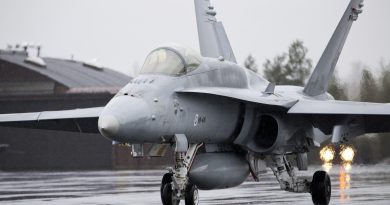Northwestern Canada: hopes sinking for Dawson City ice bridge, despite cold snap
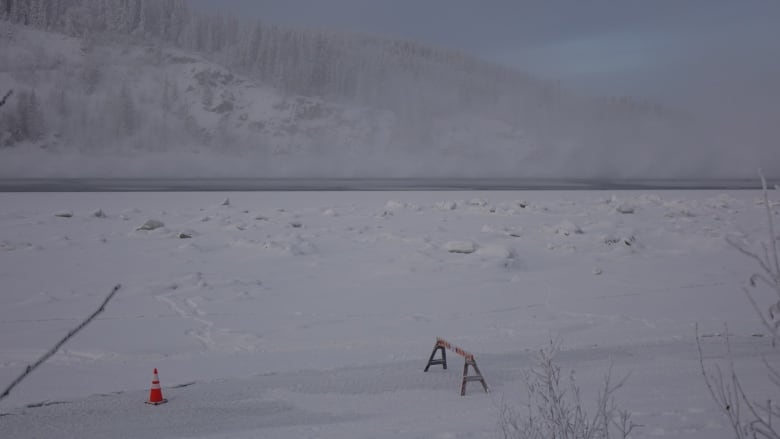
You’d think making ice would be a cinch at -40 C.
Not so, in Dawson City, Yukon. A $200,000 effort to force-freeze a Yukon River ice road crossing seems to be stuck in neutral.
“We aren’t seeing ice build up like we would expect with cold weather. It seems like the ice along the shoreline is not moving into the river like we would expect,” said Paul Murchison, a director with the Yukon government’s Department of Highways and Public Works.
“I hope we can build our ice bridge. We really want to build an ice bridge, but we have no guarantees at this time.”
The government hired an engineering firm last month to try to build the ice road crossing to West Dawson. A log boom was installed in the water last month to encourage ice to form and solidify enough to build and maintain a road.
Murchison has been monitoring the progress from his office in Whitehorse, via remote camera. This week he can’t really see much of anything, because the brutal cold has filled the scene in Dawson City with ice fog.
In the past, the river would reliably freeze on its own at the ferry crossing. But recent years have seen a persistent stretch of open water there, and so there’s been no government road.
Dawson City Mayor Wayne Potoroka is happy the territorial government is trying to find a solution. But he’s not optimistic.
“Not holding out a lot of hope right now that this is going to work,” Potoroka said. “If it’s going to work at all, this would be the time though, when we’re seeing –40 temperatures and colder.”
‘Credit for trying’
“It’s just been an inconvenience,” said Kyler Mather, who lives in West Dawson. Last year, he helped build an unofficial — and inexpensive — crossing, using little more than a tree and a length of rope.
Mather said there’s another unofficial road across the river this year. He’s been using it, but said it’s a longer detour and nobody can vouch for its safety.
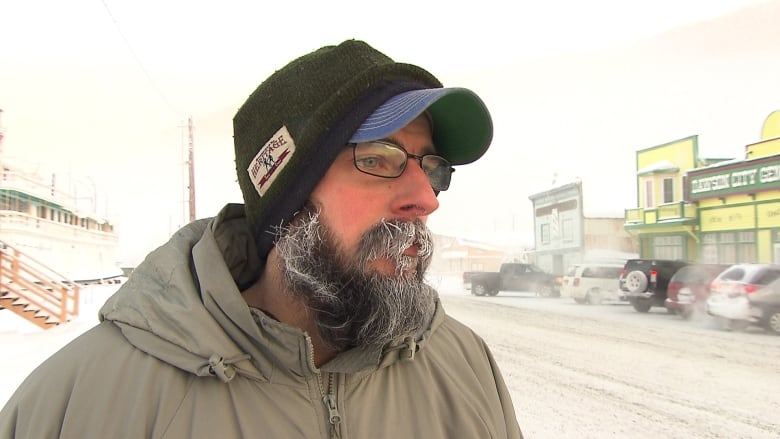
Like Potoroka, he’s glad the Yukon government is making the effort — even if it fails.
“Give them credit for trying something, right? I mean, if they just walked away and kind of left everyone hanging, that would be pretty disappointing too,” he said.
But not everybody thinks it’s money well spent. Marie-Claude Dufresne moved to West Dawson years ago with her family, knowing they’d always have to reckon with the river to reach town.
“It’s a choice, and if there’s no ice bridge, you have to live with it. You have to adapt to the river, and not ask the river to adapt to you,” she said.
Still, she said she’s not against the idea of a government-maintained ice bridge. But she’s annoyed when people think Dawsonites are owed a bridge.
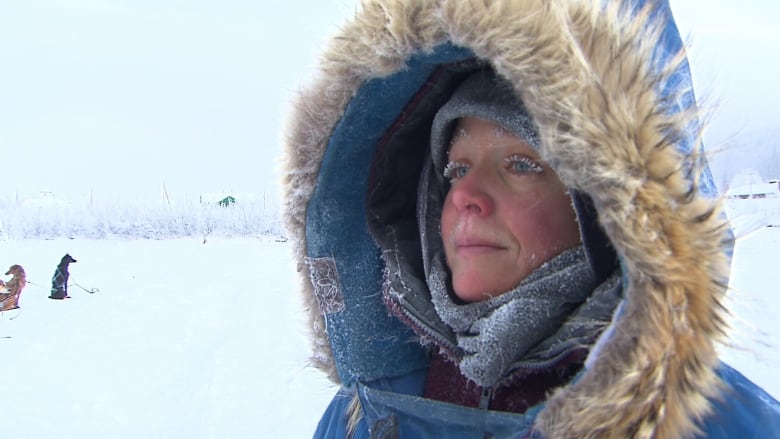
“What I’m against is expenses, a huge amount of dollars, taxpayers’ money, that are used to do something that most people know, it’s not going to work,” she said.
“You choose to live on the west side, why are you expecting Dawsonites and Yukoners to spend taxpayers’ money for that, when Mother Nature is not co-operating?”
Not giving up yet
Some Dawsonites have suggested that work should have begun earlier in the winter — for example, by installing a log boom as soon as the George Black ferry stops running in the fall.
But Murchison said the Yukon River is considered a navigable waterway, and you can’t put boaters at risk by installing something in the water too early.
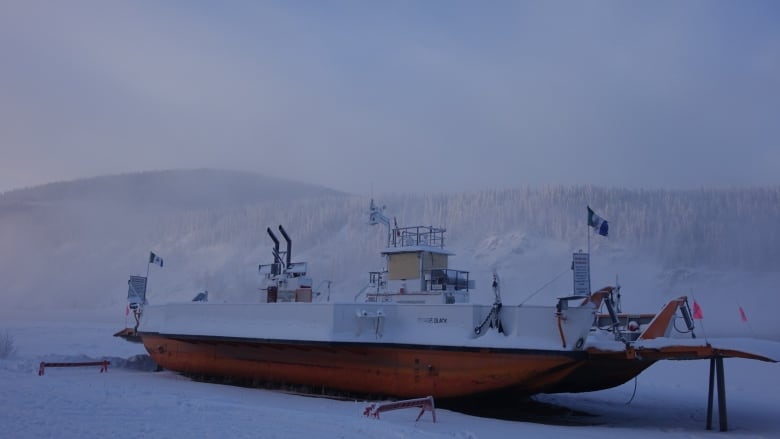
Engineers have not yet given up on this year’s effort. Murchison said they’ll be back next week to try spraying water near the log boom, hopefully to make ice. But a similar technique used last year was a bust.
“I think skepticism is reasonable, because we’re facing challenging conditions and a lot of uncertainty,” Murchison said.
“The river will determine whether or not the ice bridge goes in.”
Related stories from around the North:
Canada: Canadian government pledges $400 million for northern transport, CBC News
Faroes: Underwater tunnels revolutionize transport in the Faroe Islands, Cryopolitics Blog
Finland: Finland to upgrade Arctic border-crossing point to welcome more traffic from northern Russia, The Independent Barents Observer
Norway: European Commission suggests extending major rail network to Northern Norway, The Independent Barents Observer
Russia: Smelters, huskies, and fish pies: the Arctic road from Norway to Russia, Cryopolitics Blog
Sweden: Growing number of Swedes choose train travel over flying to reduce pollution, Radio Sweden, Radio Sweden
United States: ‘The permafrost is dying’: Alaska city sees increased shifting of roads and buildings, Alaska Dispatch News

